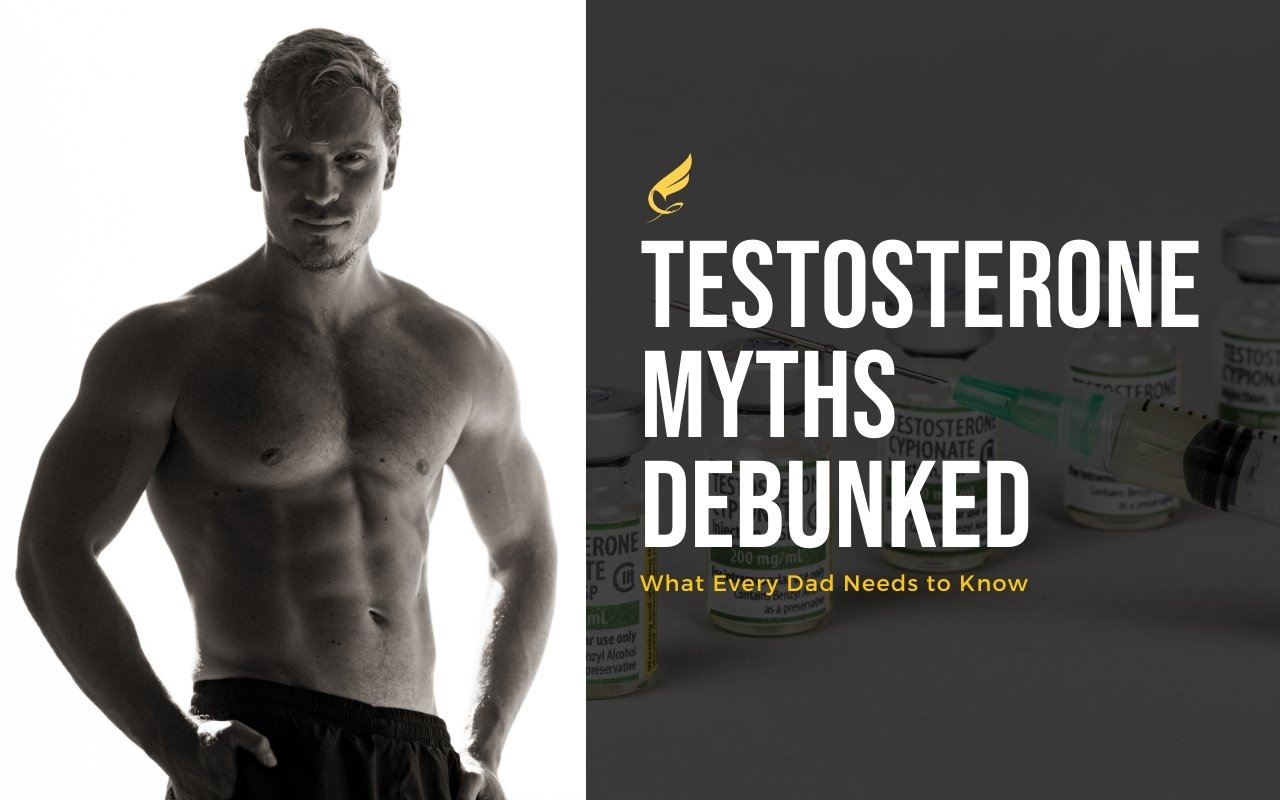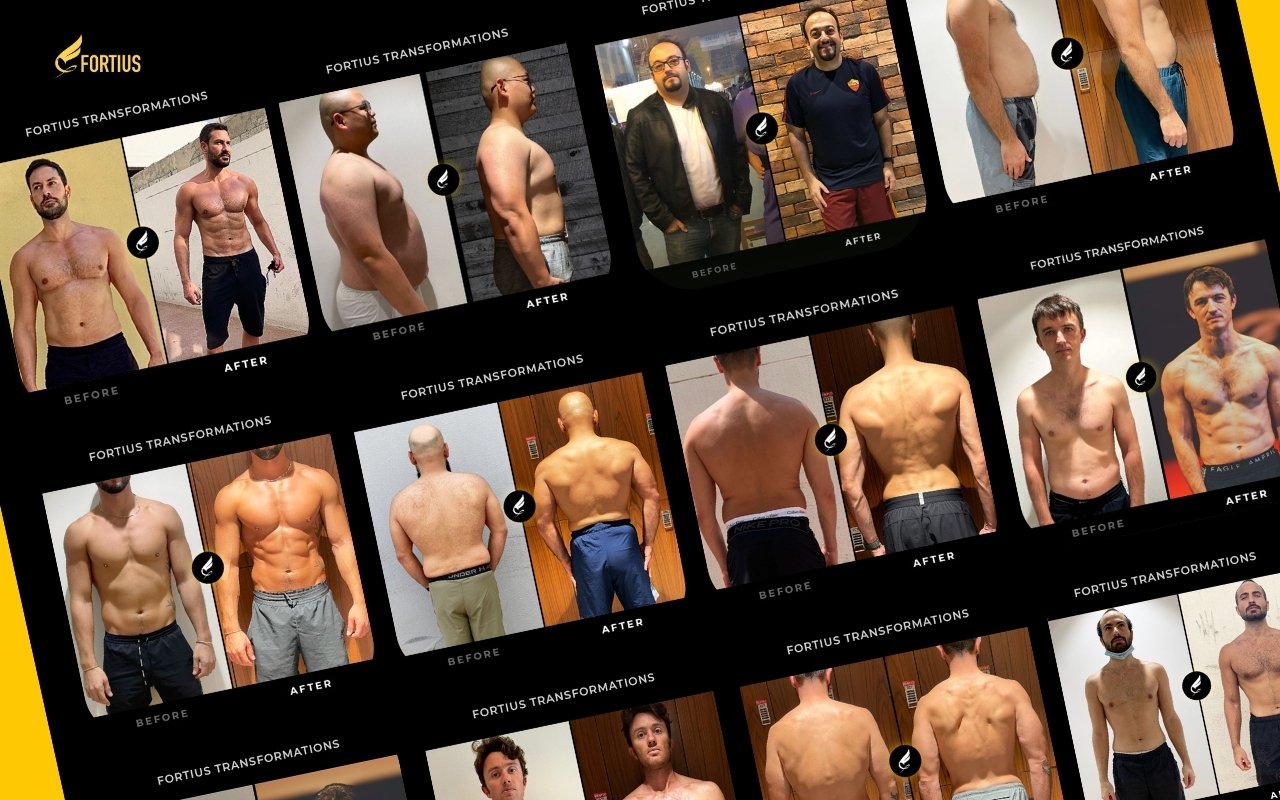5 Testosterone Myths Debunked: What Every Dad Needs to Know
Testosterone. It's a hormone that's often associated with masculinity, muscle, and vitality. But with so much information (and misinformation) floating around, it's easy to get confused about what's true and what's just a myth, a popular myth in many cases. As a busy dad, you need accurate information to make informed decisions about your health and fitness. Many factors can contribute to your overall health.
In my previous posts, including "The Busy Dad's Guide to Sustainable Fitness in Dubai," "Low Testosterone in Men: Signs, Symptoms, and Solutions for Dubai Dads," "Testosterone and Strength Training: A Powerful Combination for Dads," and "The Busy Dad's Guide to Meal Prep: Fueling Energy and Muscle in Dubai," I've discussed the importance of testosterone for men's health and how to optimize it naturally. Now, let's clear up some common misconceptions by debunking 5 prevalent testosterone myths.
Myth #1: Testosterone is Only About Sex Drive and Muscles
Fact: While testosterone plays a crucial role in libido and muscle growth, its influence extends far beyond that. Testosterone is essential for:
Bone Health: Maintaining bone density and preventing osteoporosis.
Red Blood Cell Production: Ensuring adequate oxygen gets transported throughout the human body.
Mood Regulation: Influencing mood, energy levels, mental health and cognitive function.
Fat Distribution: Helping to regulate body fat distribution and promoting weight loss.
Overall Well-being: Contributing to a general sense of vitality and well-being.
Sperm Production: Testosterone plays a crucial role in sperm production, and low levels of testosterone can affect a man's fertility.
Myth #2: Low Testosterone Only Affects Older Men
Fact: While it's true that testosterone levels naturally decline with age, starting around 30, younger men can also experience low testosterone. In fact, most men start to experience a gradual decline, and the rate of decline can vary from person to person. Lifestyle factors such as chronic stress, poor diet, lack of exercise, and certain medical conditions can contribute to low T levels in men of all ages. Many men might experience symptoms of low testosterone without realizing that low testosterone might be the cause. It is important to understand what is considered low for your age, and when it might be a cause for concern.
Myth #3: Testosterone Replacement Therapy (TRT) is a Quick Fix for All Men
Fact: TRT, which might involve a testosterone gel, injections or other medications, can be an effective treatment for men with clinically diagnosed low testosterone. This is also sometimes referred to as testosterone therapy. However, it's not a one-size-fits-all solution and should only be considered under the guidance of a healthcare professional after a thorough evaluation that includes blood tests to measure your serum testosterone levels and other hormones, and possibly even a semen analysis. It's important to note that serum testosterone levels can give a good indication of your overall testosterone levels. TRT comes with potential risks and side effects, including:
Increased risk of prostate issues: In some men, there is an increased risk of developing prostate cancer or experiencing an enlarged prostate.
Cardiovascular problems: Some studies suggest a link between TRT and an increased risk of cardiovascular disease and high blood pressure in certain individuals, although more research is needed.
Sleep apnea: TRT can worsen existing sleep apnea.
Male Infertility: It is also very important to know that prolonged exposure to TRT can negatively affect your sperm count and quality, and as a result negatively affect your fertility and reduce the likelihood of your partner getting pregnant. TRT can have adverse effects on male fertility, this is why it is very important to work with a doctor if you are considering it.
Other potential issues: This can include acne, enlarged breasts, shrinking of the testicles, mood swings and hair loss.
Your doctor might also want to check your levels of sex hormone binding globulin. This protein binds to testosterone and can affect the amount of free testosterone available in your body. For many men, lifestyle changes like those discussed in my previous blog posts can significantly improve testosterone levels naturally.
Myth #4: You Can "Super-Boost" Your Testosterone with Supplements Alone
Fact: While certain supplements, like Vitamin D and Zinc, may play a supporting role in maintaining healthy testosterone levels, there's no magic pill that will dramatically increase your T. Supplements should be considered complementary to, not a replacement for, a healthy lifestyle. The most effective way to boost testosterone naturally is through a combination of strength training, proper nutrition, stress management, and adequate sleep. Be wary of products that promise unrealistic testosterone increases, and remember that more is not always better when it comes to hormone levels.
Myth #5: If You Lift Weights, Your Testosterone Will Automatically Be High
Fact: While strength training is one of the most effective ways to naturally boost testosterone, it's not a guarantee. Other factors, such as genetics, overall health, diet, sleep, recovery time and stress levels, also play significant roles. Furthermore, overtraining or improper training techniques can actually have a negative impact on testosterone production. It is also important to remember that many other factors, like smoking and excessive alcohol consumption can also affect your testosterone levels.
Important Considerations Regarding Low Testosterone and Fertility
It is important to address the connection between low testosterone and male fertility. Low testosterone levels can lead to a decrease in sperm production, affecting both sperm count and sperm quality. This can make it more difficult to conceive naturally. Many men are not aware of the potential impact of low t levels on their fertility until they are actively trying to have children.
If you are concerned about your fertility, it's crucial to talk to a doctor. They can perform a semen analysis to assess your sperm count, motility (ability to move), and morphology (shape). They may also measure your serum testosterone levels and other hormone levels to determine if there is a hormonal imbalance affecting your fertility.
It is also important to know that testosterone replacement therapy can have adverse effects on male fertility, and it should not be taken if you are trying to conceive. If you are considering TRT it is very important that you discuss this with your doctor.
Conclusion:
Testosterone is a vital hormone for men's health, influencing far more than just sex drive and muscle mass. It plays an important role in many functions in the human body. Understanding the facts and separating them from the myths, including popular myths about how to increase testosterone, is crucial for making informed decisions about your well-being. By adopting a healthy lifestyle that includes regular exercise (especially strength training), a balanced diet, stress management techniques, and sufficient sleep, you can optimize your testosterone levels naturally and enjoy the numerous benefits that come with it. If you are struggling to conceive, it is important to look at lifestyle factors that might be the cause.
Are you concerned about your testosterone levels or ready to take a proactive approach to your health? Contact me today for a personalized consultation. As a personal trainer in Dubai, I specialize in helping busy dads like you achieve their fitness goals through sustainable, evidence-based strategies. My 12-week body transformation program provides a structured framework for optimizing your training, nutrition, and lifestyle to help you build a stronger, healthier, and more energetic version of yourself. Let's work together to unlock your full potential!
-
[Low Testosterone in Men: Signs, Symptoms, and Solutions for Dubai Dads]
[Testosterone and Strength Training: A Powerful Combination for Dads in Dubai]
[The Busy Dad's Guide to Meal Prep: Fueling Energy and Muscle in Dubai]
[5 Fitness Mistakes Dads Over 40 Make (And How to Fix Them)]
[Reclaim Your Fitness After 40: Your Guide to Building Muscle, Boosting T, and Transforming Your Life]
To find out more about our services, check out:
Learn more with the most comprehensive fitness and wellness blog in the Middle East:
#StayStrong
#BeFortius






